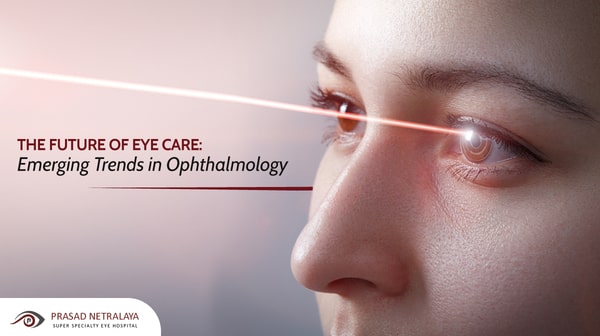Is Refractive Surgery Right for You? Factors to Think About for Better Eyecare
In the world of eye care, the choice to undertake refractive surgery is a substantial one that demands thoughtful factor to consider. As individuals seek clarity and flexibility from the restraints of corrective lenses, countless variables enter play when identifying the suitability of such a procedure. From the complexities of one's eye health to the details of individual assumptions and daily routines, each element holds significance in the more comprehensive landscape of refractive surgical procedure candidateship. By evaluating these crucial elements with treatment and accuracy, a more clear course towards informed decision-making emerges.
Eye Health Analysis
When thinking about refractive surgery, a detailed eye health analysis is critical to assess the viability of the treatment for each and every individual. eye doctors in andalusia. This analysis entails a series of tests and examinations carried out by an eye care expert to establish the general health and wellness of the eyes, the visibility of any type of underlying conditions, and the security of the refractive error
During the examination, different factors are taken right into account, such as the person's medical history, current eye prescription, corneal thickness, pupil size, and tear movie high quality. These assessments help to determine any kind of contraindications to refractive surgical treatment, such as corneal abnormalities, cataracts, or neglected eye infections. Additionally, the examination aids to handle person expectations regarding the potential outcomes of the surgical treatment based upon their distinct eye attributes.
Inevitably, the eye health and wellness examination is important in ensuring the security and effectiveness of refractive surgery, as it gives useful insights right into the person's eye health condition and helps figure out one of the most suitable treatment choices for accomplishing optimum visual end results. (neurologist andalusia)
Lifestyle Assessment
A thorough lifestyle evaluation is integral in identifying the suitability of refractive surgical treatment for an individual's visual correction needs. Way of life aspects such as profession, leisure activities, and daily activities play a crucial duty in the decision-making process concerning refractive surgery.
Additionally, way of living behaviors such as sporting activities participation, exterior tasks, or even skin care regimens can influence the recovery procedure and overall success of refractive surgical treatment. By conducting a thorough lifestyle analysis, eye care professionals can tailor their referrals and treatment plans to meet the distinct needs of each patient, ultimately leading to improved aesthetic outcomes and complete satisfaction.
Assumption Positioning

People require to understand that while numerous people attain 20/20 vision or far better following refractive surgical procedure, some may still call for glasses for specific activities like analysis or driving at night. Taking care of these assumptions aids protect against disappointment and dissatisfaction post-surgery, leading to a much more positive total experience for the person.
Threat Evaluation

Elements that may boost the threat of difficulties include age, particular medical conditions like autoimmune conditions, unpredictable vision prescription, slim corneas, and unrealistic individual expectations. In addition, picking a proficient and skilled doctor, adhering to pre and post-operative treatment instructions carefully, and divulging any pertinent medical background can aid alleviate threats.
To reduce the likelihood of issues, ophthalmologists carry out extensive pre-operative assessments to identify any contraindications to surgery. They also talk about the potential dangers and advantages with people during the consultation procedure. By participating in open interaction and shared decision-making, both the person and the ophthalmologist can interact to figure out this content if refractive surgery is the right choice based on individual risk accounts and wanted outcomes.
Assessment Value
Thinking about the important function of notified decision-making in analyzing risks and prospective complications in refractive surgical procedure, the examination procedure holds significant importance in guiding patients in the direction of optimal results. Throughout the consultation, the eye doctor evaluates the client's eye health and wellness, refractive mistakes, and total suitability for surgical procedure. This preliminary analysis is critical in identifying one of the most suitable procedure for every individual, considering variables such as corneal density, pupil size, and existing eye conditions.
Additionally, the examination functions as a possibility for individuals to review their expectations, issues, and any questions they might have regarding the surgical treatment. Clear communication in between the individual and the doctor is important to make sure reasonable expectations and a complete understanding of the possible dangers and advantages entailed.
Additionally, the assessment allows the doctor to describe the different medical options offered, their particular results, and the post-operative treatment required. This detailed conversation encourages people to make knowledgeable choices about their eye treatment, bring about much better complete satisfaction and end results post-surgery.
Final Thought
In final thought, individuals taking into consideration refractive surgery must undergo a detailed eye health and wellness examination, evaluate their lifestyle routines, align their assumptions with possible end results, assess the associated risks, and focus on appointments with eye care experts. These factors play an important function in figuring out the suitability of refractive surgical treatment for each individual, making certain optimum outcomes and satisfaction with the procedure.
People thinking about refractive surgical treatment usually have high assumptions relating to the end results, anticipating excellent vision without the requirement for glasses or contact lenses. While refractive surgery can significantly enhance vision and minimize dependency on aesthetic help, it is crucial for people to understand that results might differ based on specific variables such as the level of refractive browse around these guys error, corneal density, and general eye wellness.
By engaging in open communication and shared decision-making, both the client and the eye doctor can work with each other to determine if refractive surgical treatment is the best selection based on individual danger profiles and desired outcomes.
Considering the essential duty of informed decision-making in evaluating dangers and potential issues in refractive surgical procedure, the appointment procedure holds significant significance in guiding patients in the direction of ideal end results. During the examination, the ophthalmologist assesses the patient's eye health, refractive mistakes, and overall viability for surgical treatment.